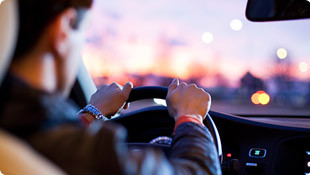Legality of DUI Survey Checkpoints Called into Question
For the last few months, survey takers contracted by the National Highway Safety Board have been setting up checkpoints on busy roadways in 60 locations nationwide in order to collect data on drug and alcohol use while driving. These checkpoints are run by off-duty police officers who are in uniform in the presence of police cars. Drivers are asked to pull off the road by the officers and then are asked by the survey takers to voluntarily submit saliva, breath and blood tests in exchange for money. The goal of this survey, which is done every decade or so, is to determine how many people are on the road while under the influence of drugs or alcohol. The National Highway Safety Board maintains that this survey is completely voluntary and that the point of this survey is not for enforcement of DUI laws, but rather to collect data.
However, this survey is proving to be quite problematic across the country with some states passing laws to disallow any participation and other cities and police departments refusing to assist in the poll because of fears of liability. The main argument against the survey, which is the subject of lawsuits throughout the country, is that the checkpoints do not appear to be voluntary because of police participation, making them an illegal stop for constitutional purposes.
There have been many constitutional challenges to DUI checkpoints both with the Florida and the U.S. Supreme Courts and there are some legal guidelines and justifications for keeping these checkpoints. The justification used by the U.S. Supreme Court in 1990 when they allowed such checkpoints is that law enforcement had an interest in protecting the public against drunk drivers and that it was not unreasonable for them to use DUI checkpoints to do so.
However, there is a difference between stopping drivers at a DUI checkpoint used for the purpose of enforcing the laws against drinking and driving and setting up a checkpoint for a survey. Government officials insist that taking the survey is voluntary, yet with the presence of uniformed officers and police cars at the scene, it may not be clear to many motorists that they are allowed to refuse and not face a legal penalty. Additionally, since the National Highway Safety Board has insisted from the beginning that these checkpoints are not used for enforcement of drunk driving laws, it does appear that they have no justification for these traffic stops when they are done in this manner. They are not providing immediate protection of the public from drunk drivers at these checkpoints, but are rather collecting data for use in developing policy. Protecting the public through surveys seems to be weak justification for allowing these checkpoints and is the cause of them being legally problematic.
When it comes to taking a breathalyzer or other test when there is a suspicion of drug or alcohol use, there is implied consent, meaning that you are legally not allowed to refuse if pulled over by police and they suspect you are under the influence. Be aware, however, that this does not affect these survey stops in any way. A driver is allowed to refuse any of the tests requested by these survey takers, regardless of what the stop looks like. There are no legal penalties for refusal.


